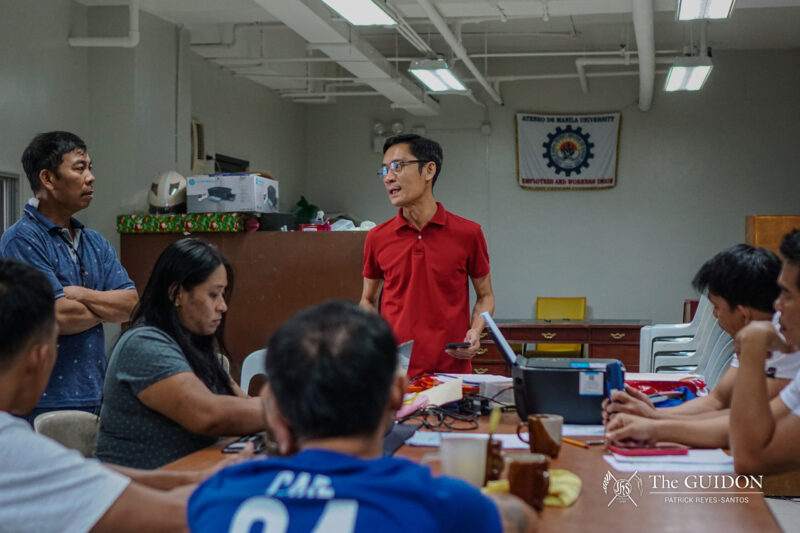THE ATENEO Student Catholic Action (Atsca) held the State of the Marginalized Address (SOMA) on November 14. The SOMA shed light on the Kasambahay bill, also known as House Bill 6144 or the Domestic Workers Act of 2012. The event zeroed in on education for domestic workers.
The bill, passed earlier this January, stipulates that domestic workers are entitled to the right of education while rendering service. This right is emphasized for household helpers around 15 to 17 years old.
SOMA Project Head Maria Alyssa Rodriguez believes that education is one of the major avenues through which upward social mobility can be promoted.
“This provision, I believe, is really important so that domestic helpers aged 15 to 17 years old, who have their whole lives ahead of them, may be granted the skills and knowledge necessary for them to venture into other types of livelihood or employment should the time come that they would want to discontinue being domestic helpers,” she explained.
She added, “When we talk about the marginalized sectors, we also have to think about our close proximity with them. Sometimes, we have this notion of the marginalized sectors as always being physically far away from us, when in reality we interact with them almost every day, if not every day, most especially in the case of our domestic helpers.”
In the event, Policy Director of the Visayan Forum (VF) Jerome Alcantara, a guest speaker, explained that the said age range was the prime timeframe for someone to learn.
He further said that tuition payment should be separate from the workers’ salary. “You [employers] should allow domestic workers to acquire skills.”
The VF is a non-profit organization established in 1991. It tackles issues of domestic work, child labor and human trafficking, especially of women and children.
Rights of domestic helpers
Alcantara highlighted four key provisions concerning the rights of domestic workers: humane treatment; board, lodging and medical attention; privacy and access to outside communication; and education and training.
“We give domestic workers decent meals. If necessary, we give them accommodations,” he said. “Is it needed that they have their own rooms? Not necessarily. The only thing needed is the expectation of privacy on [the] part of the domestic workers.”
Alcantara said that the employer has the responsibility to provide board, lodging and medical attention, especially when the domestic worker actually comes to suffer from an illness as a result of his or her domestic work.
“This [provision] is also a way to diminish the vulnerability of domestic workers because we want to give them access to outside communication. Just in case the domestic workers are being abused, they can ask for help,” he said.
Importance of domestic helpers
Former domestic helper Winelyn Amida, who was also invited to the event, shared that she was granted schooling by her employers, but was denied any salary and days off.
Her employers claimed that because she spent most of her time in school rather than doing her chores, paying her was unnecessary.
“Wala akong sahod noon. Wala akong natatanggap na sahod kasi nga ang sinasabi nila, ‘Kami na ang nagpapaaral sa iyo.’ (I didn’t have any salary then. I received none because they said they were already sending me to school),” she said.
Amida was sent to the SOMA by the Samahan at Ugnayan ng mga Manggagawang Pantahanan sa Pilipinas (Sumapi), which is a national association of domestic workers in the Philippines.
Alcantara said that the VF provides specialized assistance and shelter, especially for abused domestic workers. “We work with Sumapi, and we begin in educating their members about their rights.”
He sees domestic workers as a part of an important sector in the Philippine society. “We think [that] by improving lives of domestic workers [and] by providing them decent work, it’ll reduce poverty in the long run.”
Rodriguez said, “If we’d like to help, if we’d like to understand their situation and what has led and contributed to the marginalized sectors to be marginalized, we don’t even have to look far. We can even just walk across our salas and, in the persons of our domestic helpers, we’d have a rich source of information that would make us understand the structures and realities that cause social injustice in this world.”
“[Understanding] the cause behind social injustices is one of the stepping stones that we need in order to take action.”






